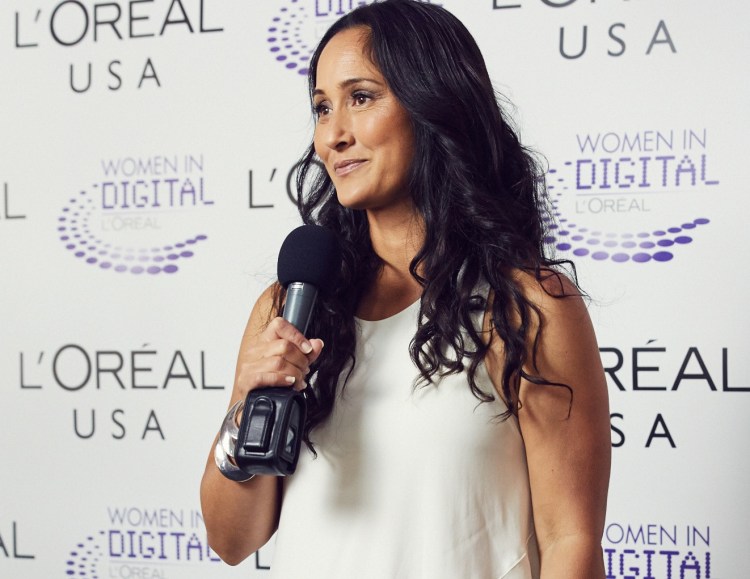Thursday night roboticist Cynthia Breazeal was one one of three women to win L’Oreal’s Women in Digital award. During the ceremony it occurred to me, wait, Cynthia Breazeal is a woman?
If you look at all the interviews, profiles, and stories about Breazeal, they describe about her achievements as a scientist in the field of robotics. They talk about Breazeal’s work at the MIT Media Lab, or they talk about Kismet, Breazeal’s doe-eyed social robot, or they talk about Jibo. But whatever they discuss, they never once mention that she’s a woman.
Has gender has ever come up in regards to her work? “It hasn’t, because I’m pioneering my field,” Breazeal tells VentureBeat at the award ceremony. This is no small feat. Most women in tech are identified exactly as such. Yahoo CEO Marissa Mayer is constantly under a magnifying glass, because she’s one of a few female CEOs in the U.S. Meanwhile Facebook COO Sheryl Sandberg actively confronts her femaleness in her book “Lean In,” a how-to/call to action for women to seek out leadership roles.
And women in tech are constantly reminded that there are not enough of us in the field with employee breakdowns from Facebook, Google, and the like, where women represent roughly a third of all employees. In the greater world of Science Technology, Engineering, and Mathematics, women occupy a quarter of all jobs, according to a census report for 2011. And within that, women are only lightly represented in computer science and engineering. As a result, when women in these fields make noteworthy accomplishments, they’re often recognized as talented … women.
June 5th: The AI Audit in NYC
Join us next week in NYC to engage with top executive leaders, delving into strategies for auditing AI models to ensure fairness, optimal performance, and ethical compliance across diverse organizations. Secure your attendance for this exclusive invite-only event.
But perhaps Breazeal marks a turning point in the way we treat professional women.
At first glance, this is something to be commended. Women have worked hard to be able to seamlessly coexist with their male counterparts, a genderless existence where we are recognized for our accomplishments outside of our femaleness. The way that Breazeal is treated professionally is something we all hope for in our careers.
Yet there are still countless women who don’t know that it’s okay to pursue STEM degrees and careers. And there are also many women in STEM careers who are reminded of their gender everyday. Is it taboo to say, yes, Breazeal is a female scientist and her accomplishment means a great deal to other women who have struggled or are struggling for recognition? Breazeal and I agreed: “It’s a fine line.”
The professional female struggle is real even if Breazeal has managed to avoid it. And for the sake of future women entrepreneurs, scientists, programmers, and chief technology officers, it may be necessary to recognize her womanness — even if it’s just among us girls.
And that’s why it’s pretty amazing that Cynthia Breazeal sat on a stage last night and accepted an award for being a female entrepreneur and scientist. Because even though we want to be recognized for our talents alone, it’s good to high-five over what we as women have been able to accomplish.


